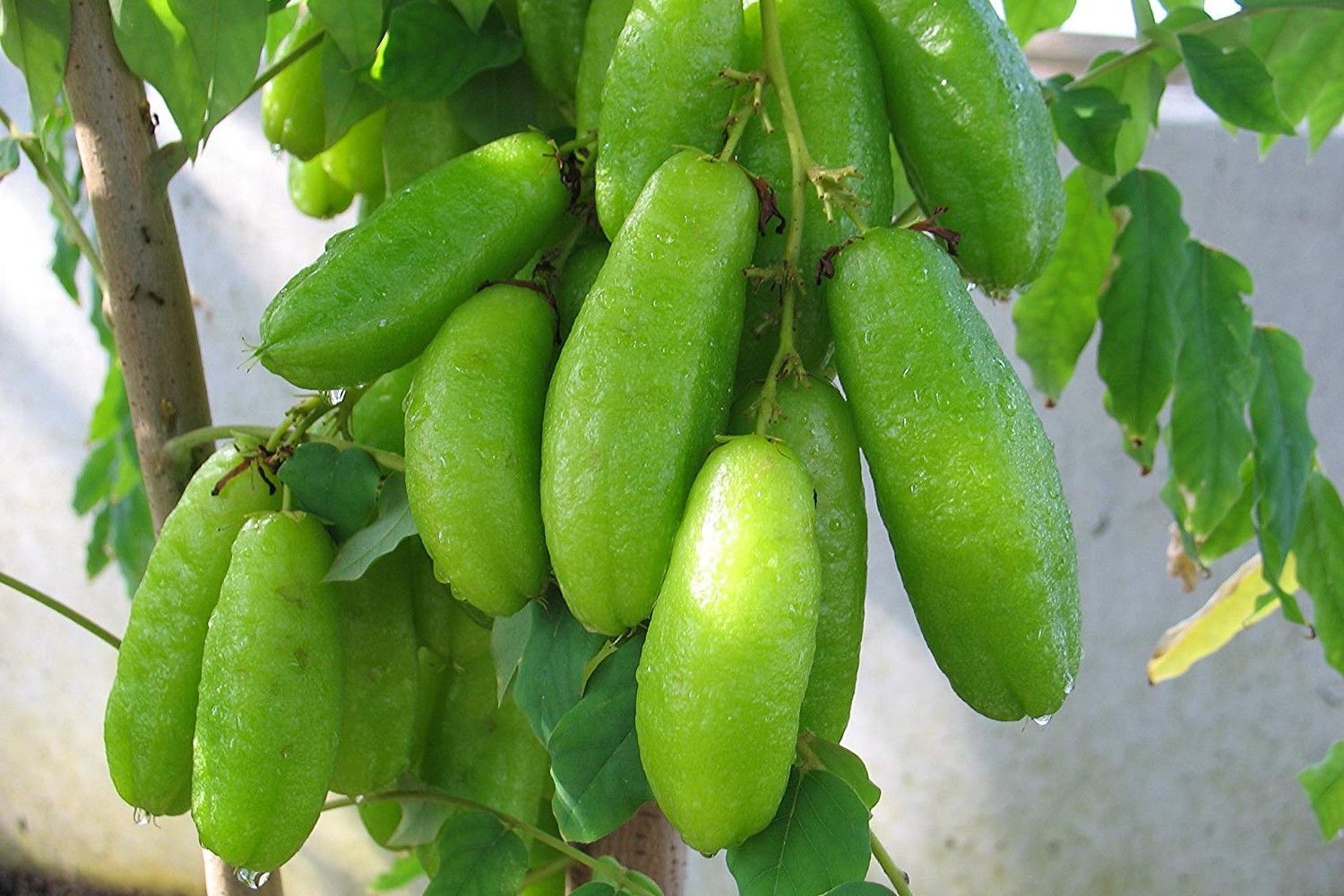
What is Bilimbi? Bilimbi, also known as the cucumber tree, is a tropical fruit native to Southeast Asia. Why is it special? This small, green fruit packs a punch with its tart flavor and numerous health benefits. What makes it unique? Unlike many fruits, bilimbi is often used in cooking rather than eaten raw. Its sour taste enhances dishes, making it a popular ingredient in curries, chutneys, and pickles. Is it healthy? Absolutely! Bilimbi is rich in vitamin C, antioxidants, and other nutrients that boost immunity and promote overall health. Curious about more? Keep reading to uncover 31 fascinating facts about this extraordinary fruit.
What is Bilimbi?
Bilimbi, also known as Averrhoa bilimbi, is a tropical fruit native to Southeast Asia. This small, green fruit packs a punch with its tangy flavor and numerous health benefits. Let's dive into some fascinating facts about this unique fruit.
-
Bilimbi is often called the cucumber tree due to its elongated shape and green color.
-
The fruit is extremely sour, making it a popular ingredient in traditional dishes and chutneys.
-
Bilimbi belongs to the same family as the starfruit, another tangy tropical delight.
Nutritional Benefits of Bilimbi
Bilimbi isn't just tasty; it's also packed with nutrients that can benefit your health in various ways.
-
Rich in vitamin C, bilimbi helps boost the immune system and fight off infections.
-
The fruit contains antioxidants that help protect the body from harmful free radicals.
-
Bilimbi is low in calories, making it a great addition to a weight-loss diet.
-
High in fiber, it aids in digestion and helps maintain a healthy gut.
Traditional Uses of Bilimbi
Throughout history, bilimbi has been used in various cultures for its medicinal properties and culinary versatility.
-
In traditional medicine, bilimbi is used to treat coughs and colds.
-
The fruit's juice is often applied to the skin to treat acne and other skin conditions.
-
Bilimbi leaves are used in some cultures to reduce swelling and inflammation.
-
In the Philippines, bilimbi is a common ingredient in sinigang, a sour soup.
Growing Bilimbi
Interested in growing your own bilimbi tree? Here's what you need to know.
-
Bilimbi trees thrive in tropical climates with plenty of sunlight and rainfall.
-
The tree can grow up to 15 meters tall, providing ample shade and fruit.
-
Bilimbi trees are relatively low-maintenance, requiring minimal pruning and care.
-
The fruit can be harvested year-round, making it a reliable source of fresh produce.
Culinary Uses of Bilimbi
Bilimbi's unique flavor makes it a versatile ingredient in many dishes.
-
In India, bilimbi is often used to make pickles and chutneys.
-
The fruit can be added to curries and stews for a tangy twist.
-
Bilimbi can be used to make refreshing juices and beverages.
-
The fruit is sometimes candied or preserved in sugar syrup for a sweet treat.
Health Benefits of Bilimbi
Beyond its nutritional value, bilimbi offers several health benefits that make it a valuable addition to your diet.
-
Bilimbi has anti-inflammatory properties that can help reduce pain and swelling.
-
The fruit's high vitamin C content helps improve skin health and reduce signs of aging.
-
Bilimbi can help regulate blood sugar levels, making it beneficial for people with diabetes.
-
The fruit's antioxidants help protect the heart and reduce the risk of cardiovascular diseases.
Fun Facts About Bilimbi
Here are some quirky and lesser-known facts about bilimbi that might surprise you.
-
Bilimbi is sometimes called the "tree sorrel" due to its sour taste.
-
The fruit is often used as a natural cleaning agent due to its acidic properties.
-
In some cultures, bilimbi is believed to have aphrodisiac properties.
-
The fruit's juice can be used to remove stains from clothes and fabrics.
Bilimbi in Modern Research
Recent studies have shed light on some of the potential health benefits and uses of bilimbi.
-
Research suggests that bilimbi may have antimicrobial properties, making it effective against certain bacteria and fungi.
-
Some studies indicate that bilimbi could help lower cholesterol levels.
-
Bilimbi extract is being studied for its potential to prevent kidney stones.
-
Ongoing research is exploring the fruit's potential anti-cancer properties.
Bilimbi is more than just a tangy fruit; it's a nutritional powerhouse with a rich history and numerous uses. Whether you're interested in its health benefits, culinary versatility, or traditional uses, bilimbi is a fascinating fruit worth exploring.
The Final Word on Bilimbi
Bilimbi, often overlooked, packs a punch with its unique flavor and nutritional benefits. This small, green fruit is a powerhouse of vitamin C, antioxidants, and essential nutrients. It’s not just a culinary delight but also a natural remedy for various ailments. From boosting immunity to aiding digestion, bilimbi has a lot to offer. Its versatility in the kitchen, whether in chutneys, pickles, or juices, makes it a favorite in many cultures. Plus, its medicinal properties have been valued for generations. If you haven’t tried bilimbi yet, it’s time to give this tangy fruit a chance. Whether you’re a food enthusiast or someone looking to improve your health naturally, bilimbi is worth exploring. So, next time you spot this green gem, remember its numerous benefits and give it a try.
Was this page helpful?
Our commitment to delivering trustworthy and engaging content is at the heart of what we do. Each fact on our site is contributed by real users like you, bringing a wealth of diverse insights and information. To ensure the highest standards of accuracy and reliability, our dedicated editors meticulously review each submission. This process guarantees that the facts we share are not only fascinating but also credible. Trust in our commitment to quality and authenticity as you explore and learn with us.
